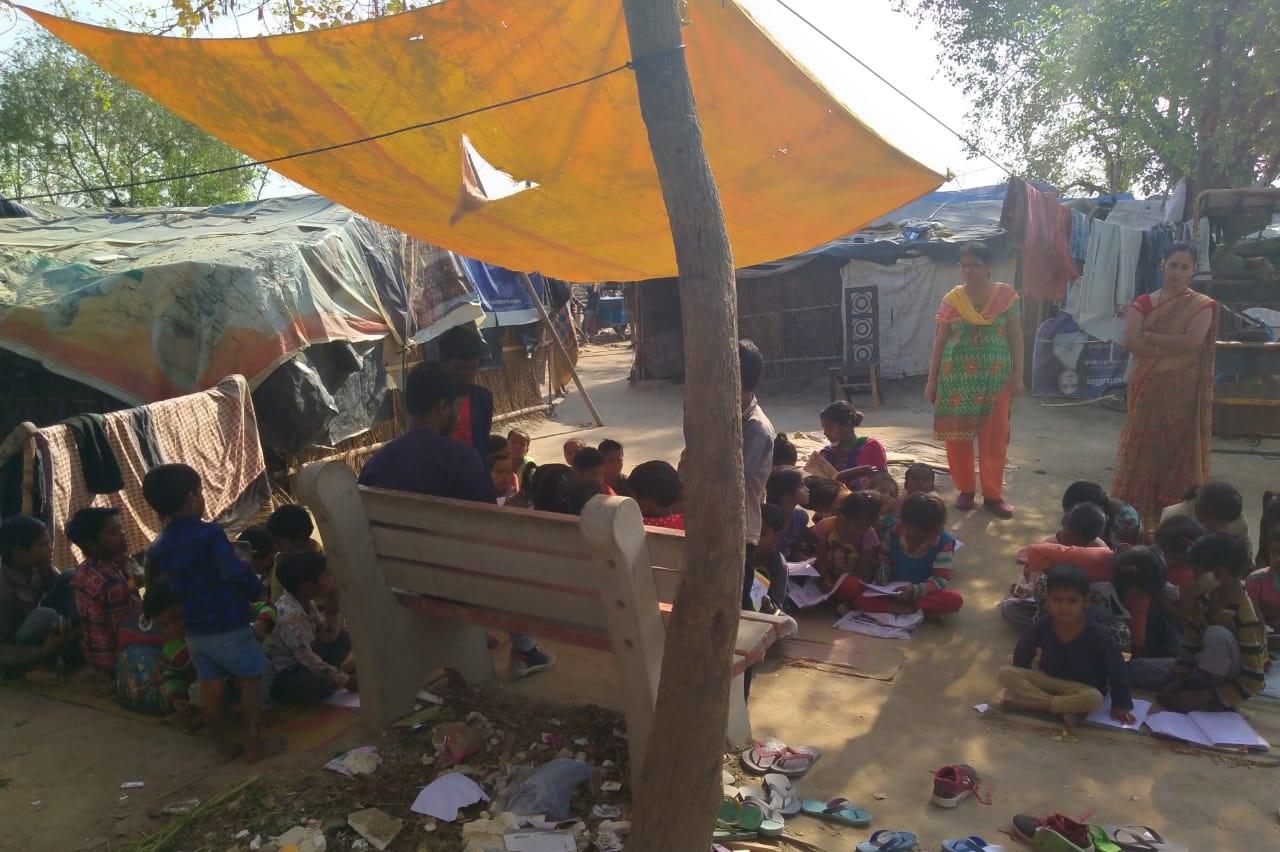FREE EDUCATION FOR SLUM AREA:
It is heartening to find that around 350 children in a slum in Yamuna Khadar (New Delhi) are getting free education due to the benevolent nature of Anusandhan Foundation’s dedicated educated team who, along with their livelihood, provides free education to the most underprivileged. Education at the urban slum areas is essential because it can provide the only passage towards a better life and increased wages. Often, slum dwellers, faced with harsh reality, force their children to drop out of school to opt for some work which can provide instant income.
This may ensure some relief for the time, but in the long run, never allows a slum dweller to leave the cycle of hardship. While it’s true that most people living in shantytowns do not face malnutrition, starvation or extreme poverty, they can’t leave the sphere of suffering because without education, possibilities of social elevation are limited. Even for technical skill development, education till class eight is a must. In such a scenario, the government, through the ward commissioners, needs to put up a mandatory education requirement at all urban slums, using law enforcers to carry out regular monitoring. Even if a young person is compelled to work, there has to be a provision for him/her to go to school two to three evenings or nights a week for basic mathematics, language and English classes.
The reason why many of our workers going abroad are either sent back or fail to find proper employment is because their English is fragmented or non-existent. While workers from other countries like India, Sri Lanka and the Philippines are often employed as managers for their better communication skills, Bangladeshis cannot advance due to lack of basic communication. Since more corporate houses now have CSR programmes, a solid and tangible way to help society will be to open special schools at all urban slums, providing skills plus language lessons. The traditional education may be provided by schools run by NGOs or government and these special institutes can add an edge to the learning by giving English, computer and other lessons.
In India, under a government initiative, computers were set up in low income areas allowing children to play games and learn the functional usages. Similar steps can be taken up in major cities in Bangladesh.
In Yamuna Khadar (New Delhi), Anusandhan Foundation teaching to achieving something extraordinary which can expand with government approval plus support. These philanthropists who come in aid of others with simply their knowledge often remain unheralded. Let’s give them the much needed fillip.

